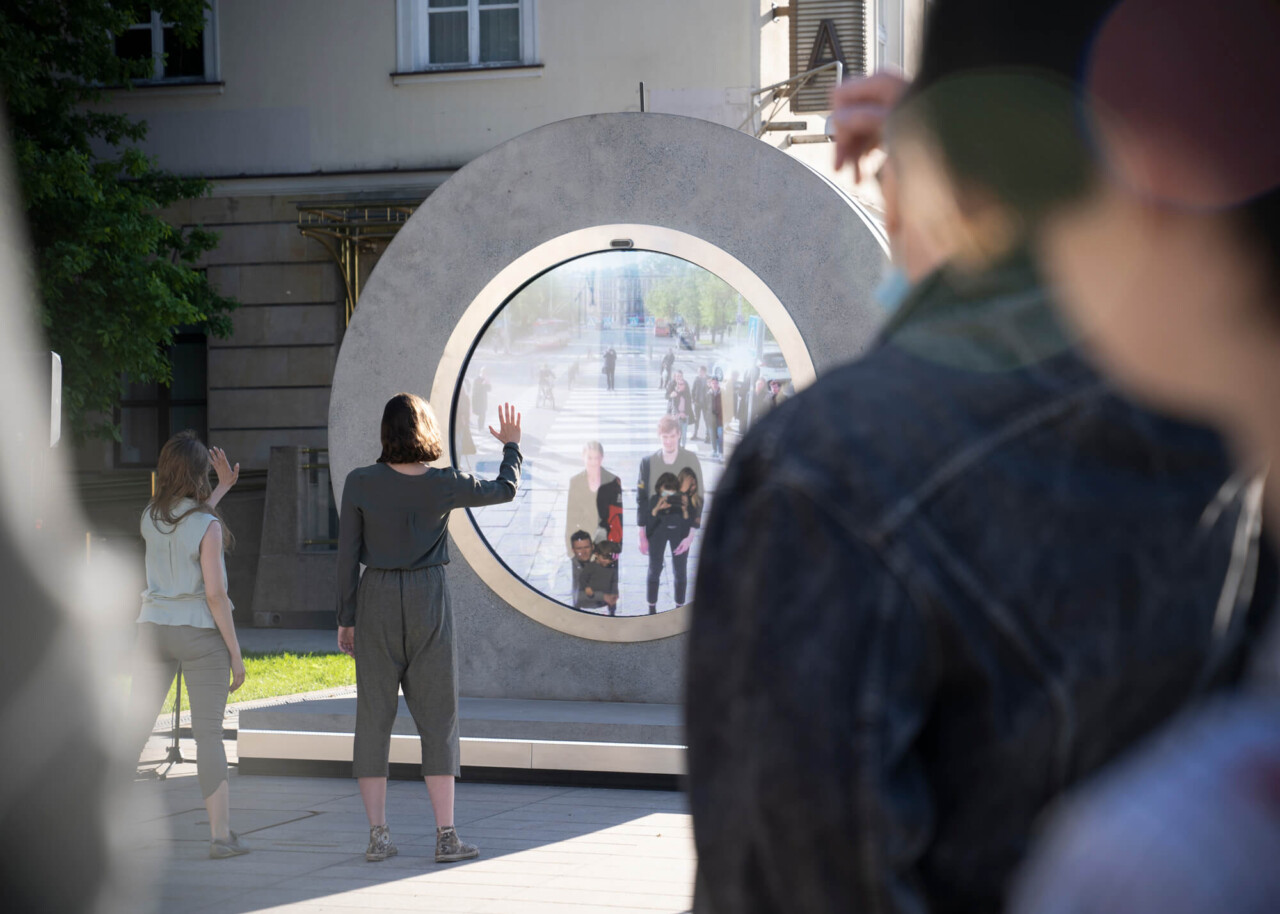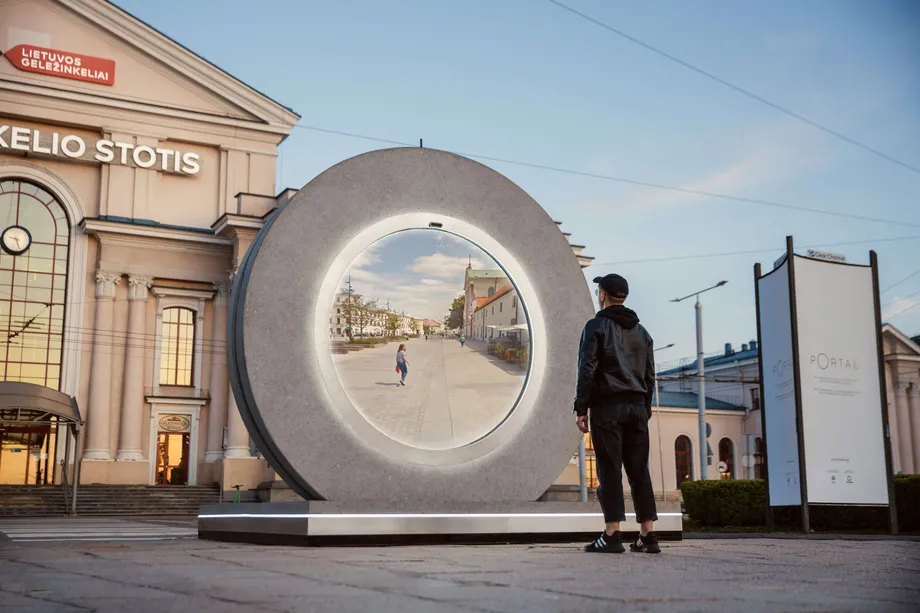Sci-Fi “Portal” Connects Citizens of Lublin & Vilnius, Allowing Passersby Separated by 376 Miles to Interact in Real Time

Can we ever transcend our tendency to divide up the world into us and them? The history of Europe, which political theorist Kenneth Minogue once called “plausibly summed up as preparing for war, waging war, or recovering from war,” offers few consoling answers. But perhaps it isn’t for history, much less for theory or politics, to dictate the future prospects for the unity of mankind. Art and technology offer another set of views on the matter, and it’s art and technology that come together in Portal, a recently launched project that has connected Vilnius, Lithuania and Lublin, Poland with twin installations. More than just a sculptural statement, each city’s portal offers a real-time, round-the-clock view of the other.
“In both Vilnius and Lublin,” writes My Modern Met’s Sara Barnes, “the portals are within the urban landscape; they are next to a train station and in the city central square, respectively. This allows for plenty of engagement, on either end, with the people of a city 376 miles apart. And, in a larger sense, the portals help to humanize citizens from another place.”
Images released of the interaction between passerby and their local portal show, among other actions, waving, camera phone-shooting, synchronized jumping, and just plain staring. Though more than one comparison has been made to the Stargate, the image also comes to mind of the apes around the monolith in 2001: A Space Odyssey, reacting as best they can to a previously unimagined presence in their everyday environment.

Ironically, the basic technology employed by the Portal project is nothing new. At this point we’ve all looked into our phone and computer screens and seen a view from perhaps much farther than 376 miles away, and been seen from that distance as well. But the coronavirus-induced worldwide expansion of teleconferencing has, for many, made the underlying mechanics seem somewhat less than miraculous. Conceived years before travel restrictions rendered next to impossible the actual visiting of human beings elsewhere on the continent, let alone on the other side of the world, Portal has set up its first installations at a time when they’ve come to feel like something the world needs. “Residents in Reykjavik, Iceland, and London, England can expect a portal in their city in the future,” notes Barnes — and if those two can feel truly connected with Europe, there may be hope for the oneness of the human race yet.
via Colossal/MyModernMet
Related Content:
This Huge Crashing Wave in a Seoul Aquarium Is Actually a Gigantic Optical Illusion
See Web Cams of Surreally Empty City Streets in Venice, New York, London & Beyond
The History of Europe from 400 BC to the Present, Animated in 12 Minutes
Haruki Murakami Novels Sold in Polish Vending Machines
Based in Seoul, Colin Marshall writes and broadcasts on cities, language, and culture. His projects include the Substack newsletter Books on Cities, the book The Stateless City: a Walk through 21st-Century Los Angeles and the video series The City in Cinema. Follow him on Twitter at @colinmarshall or on Facebook.
Sci-Fi “Portal” Connects Citizens of Lublin & Vilnius, Allowing Passersby Separated by 376 Miles to Interact in Real Time is a post from: Open Culture. Follow us on Facebook and Twitter, or get our Daily Email. And don't miss our big collections of Free Online Courses, Free Online Movies, Free eBooks, Free Audio Books, Free Foreign Language Lessons, and MOOCs.
from Open Culture https://ift.tt/3gks0eV
via Ilumina

Comments
Post a Comment